Day 3 - Stroll through Hanoi
បោះពុម្ពផ្សាយ: 26.01.2023
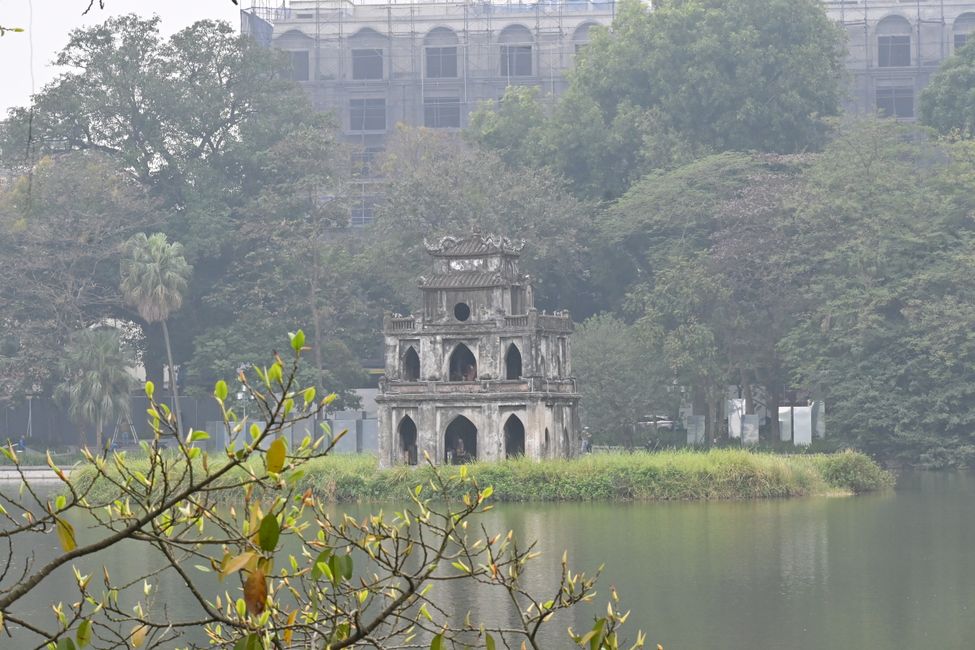
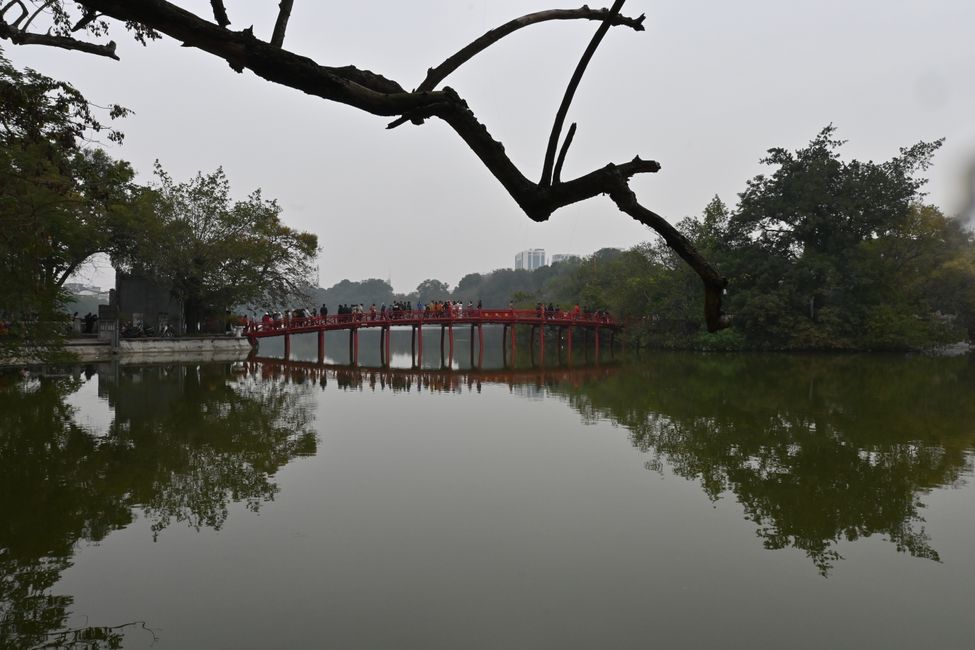
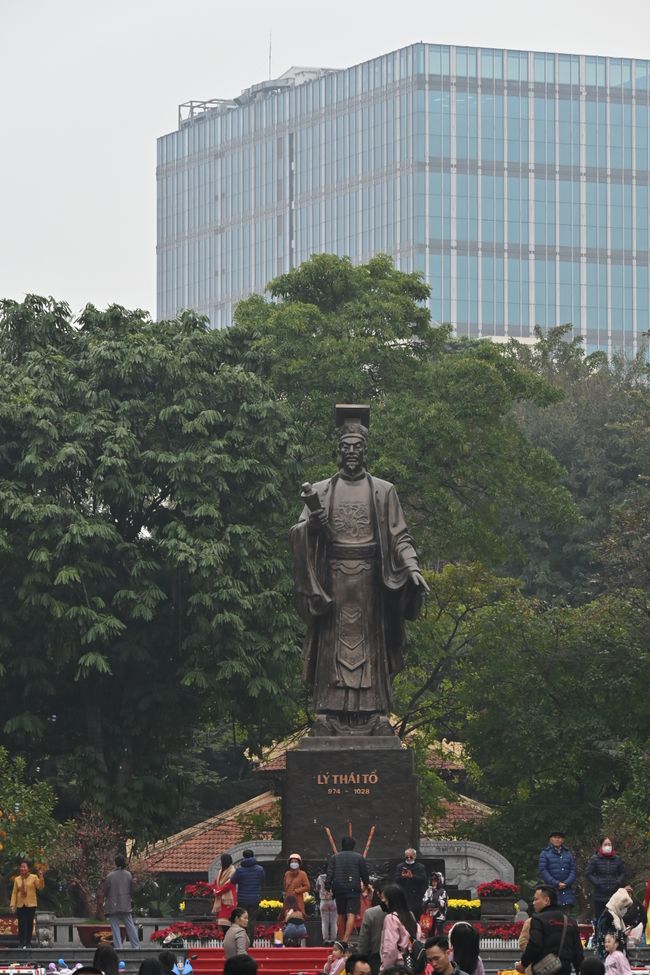
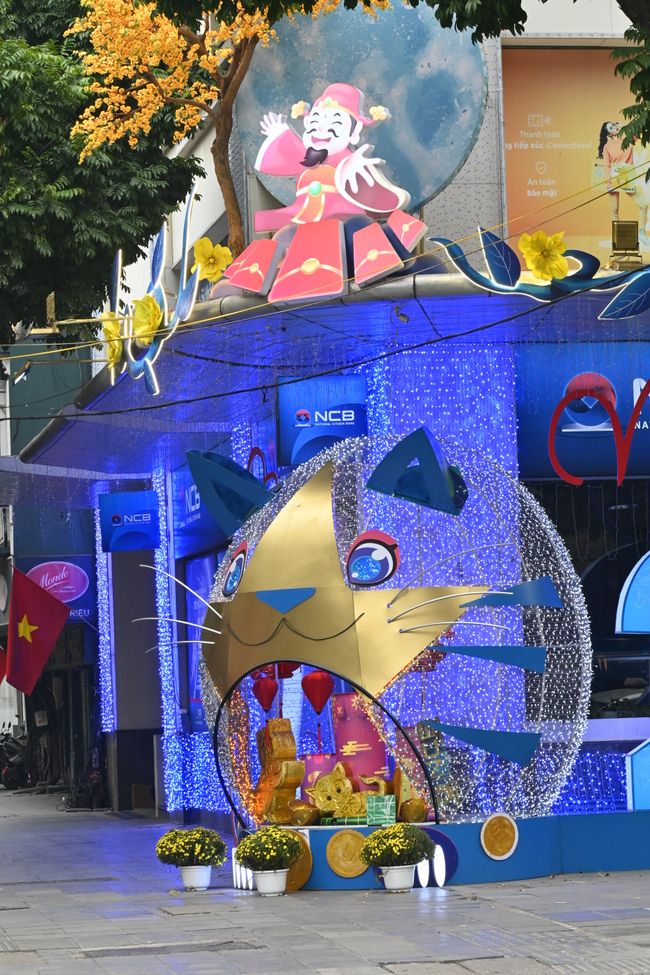
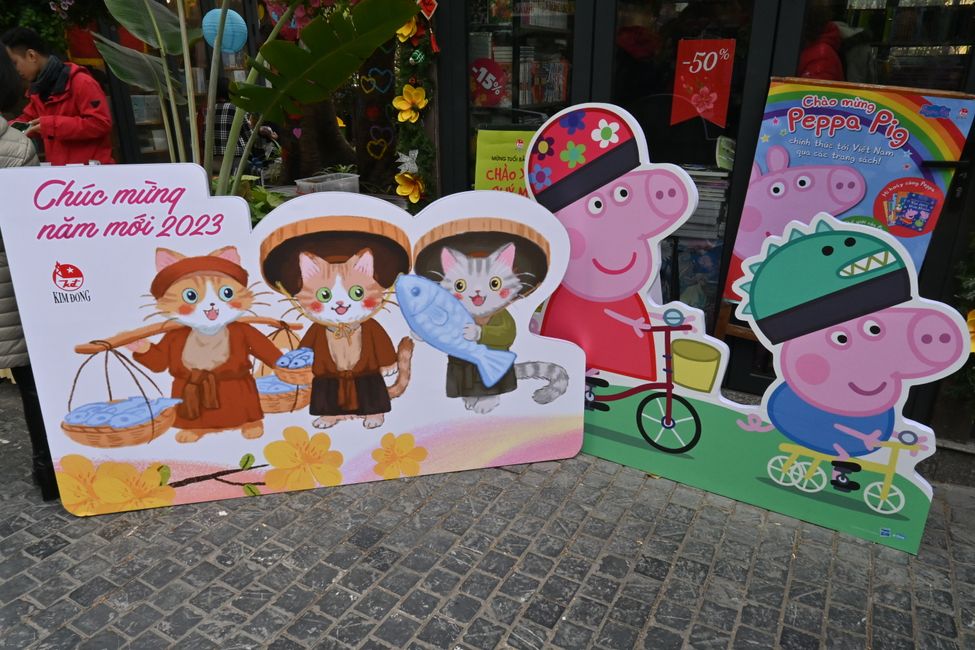
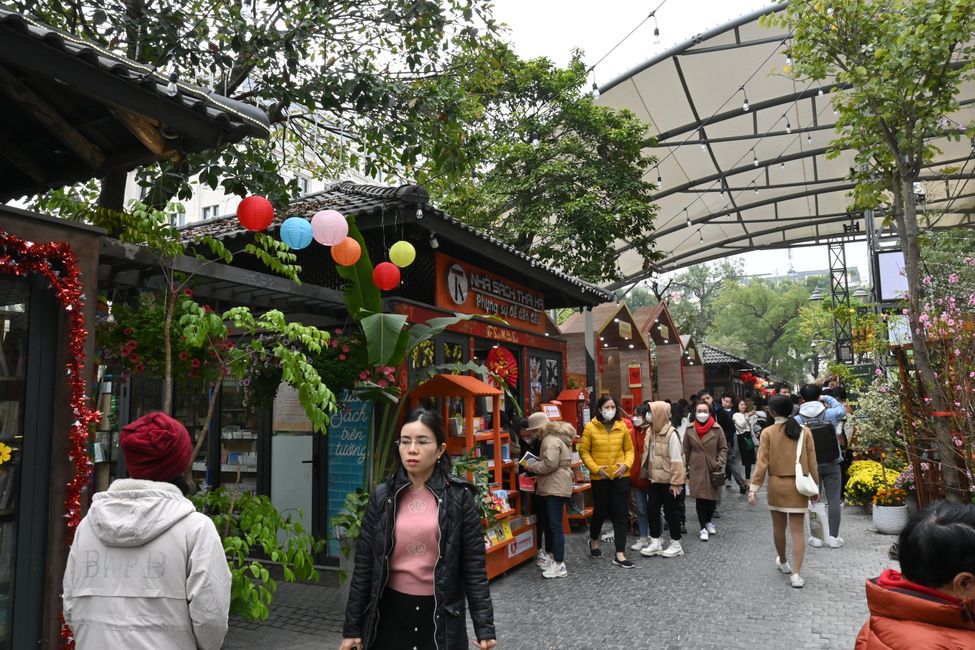
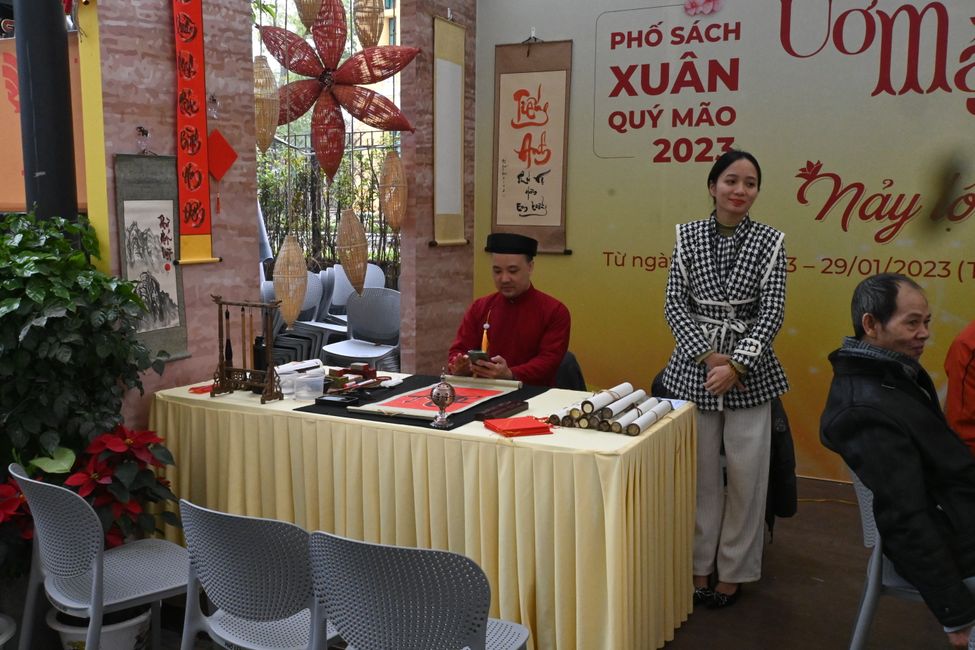

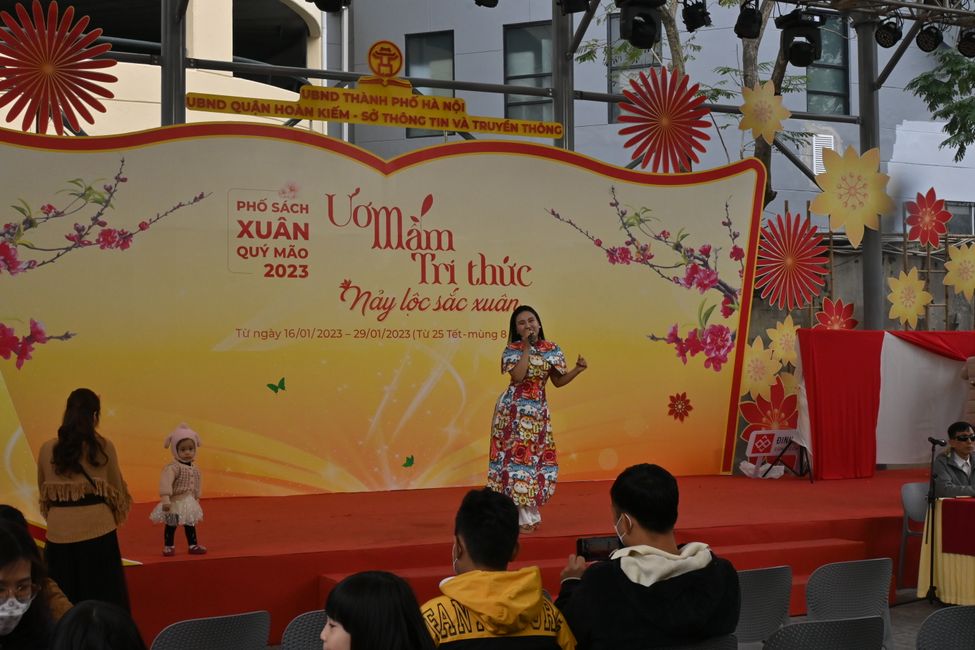
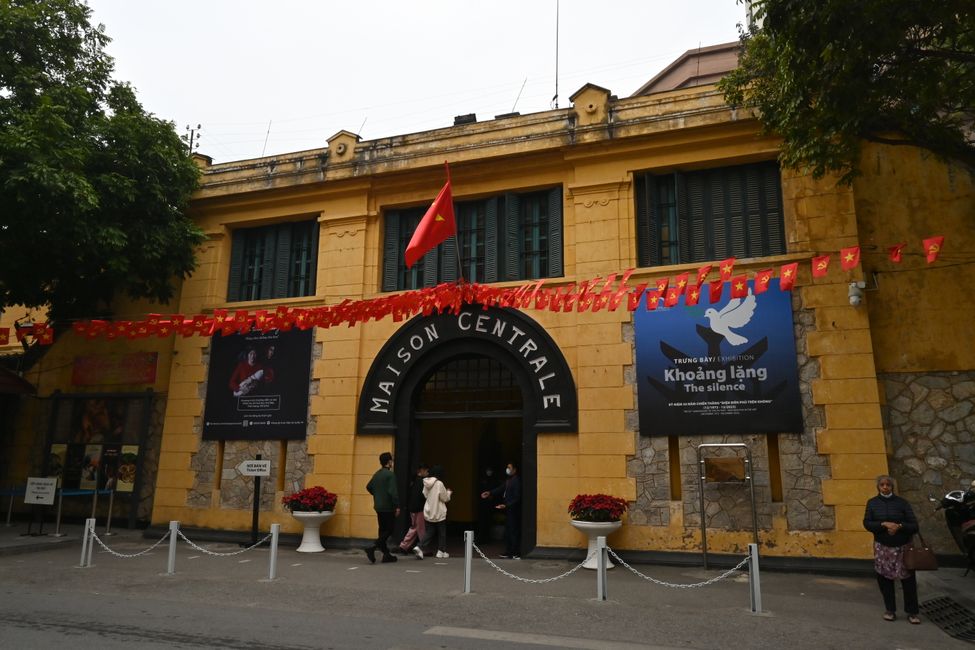
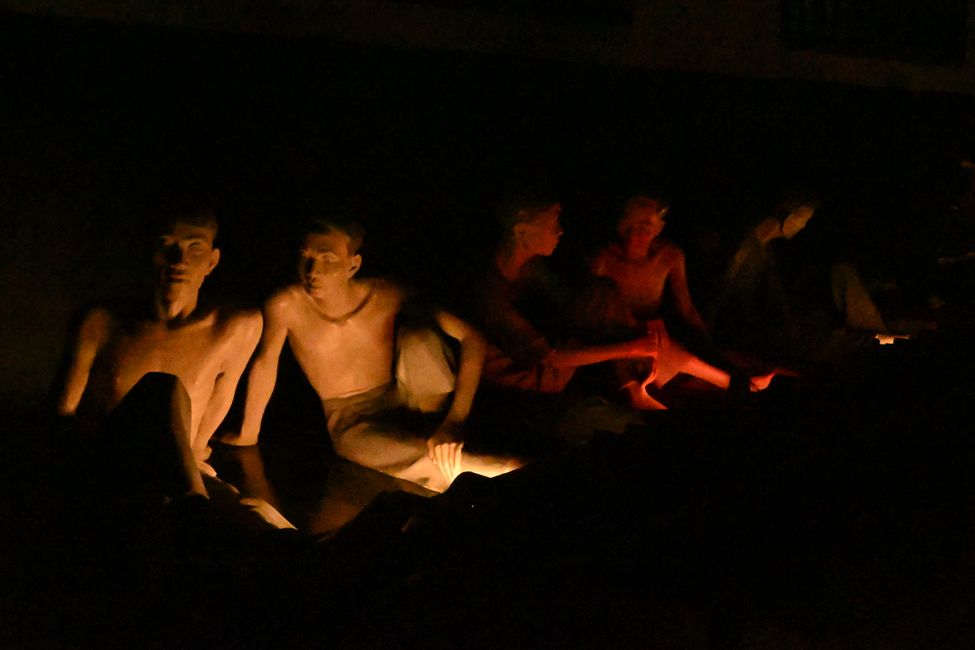
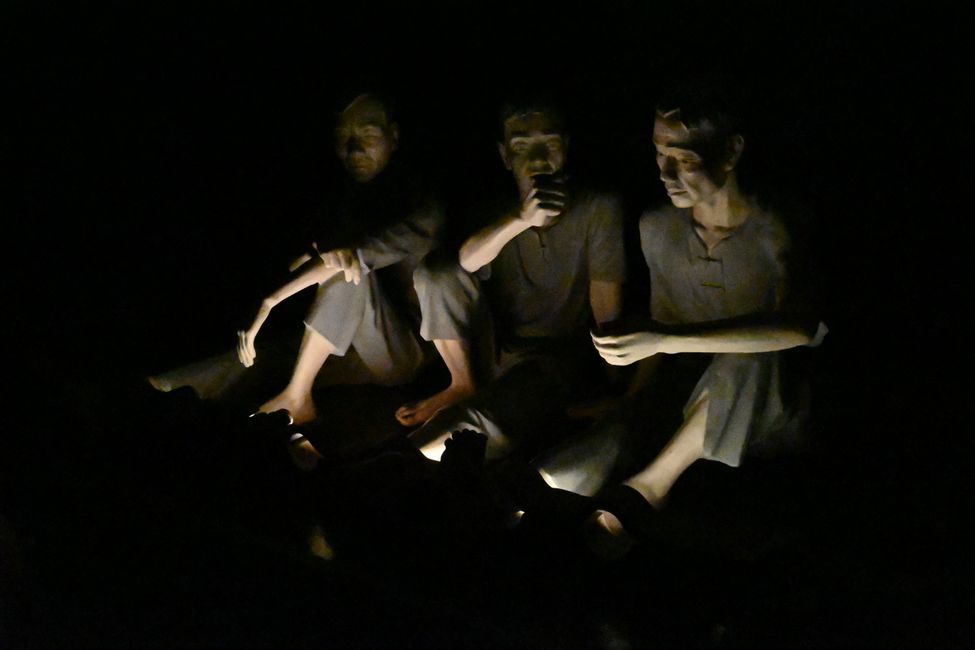
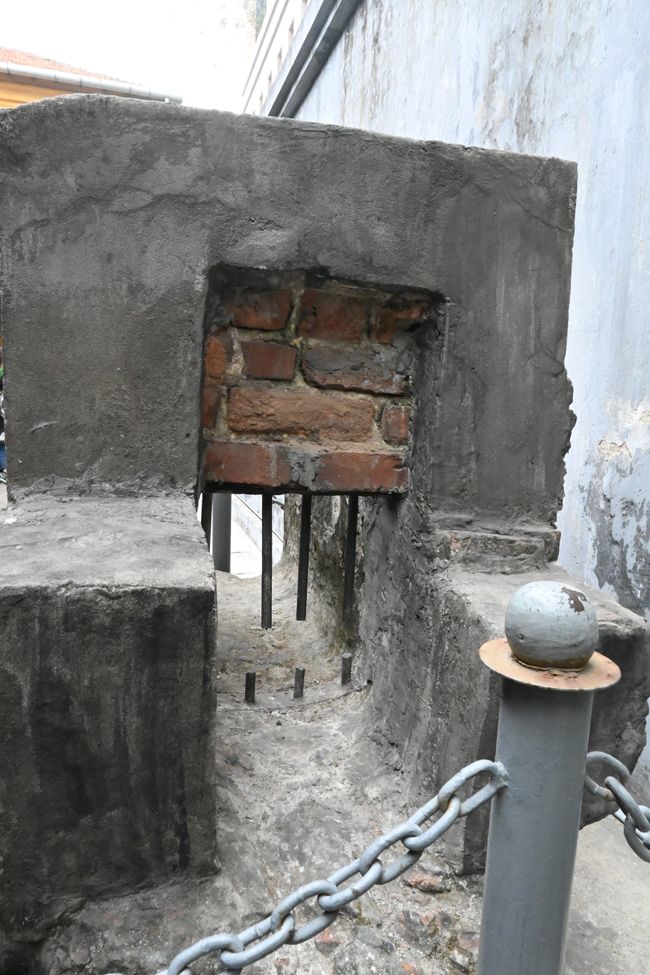
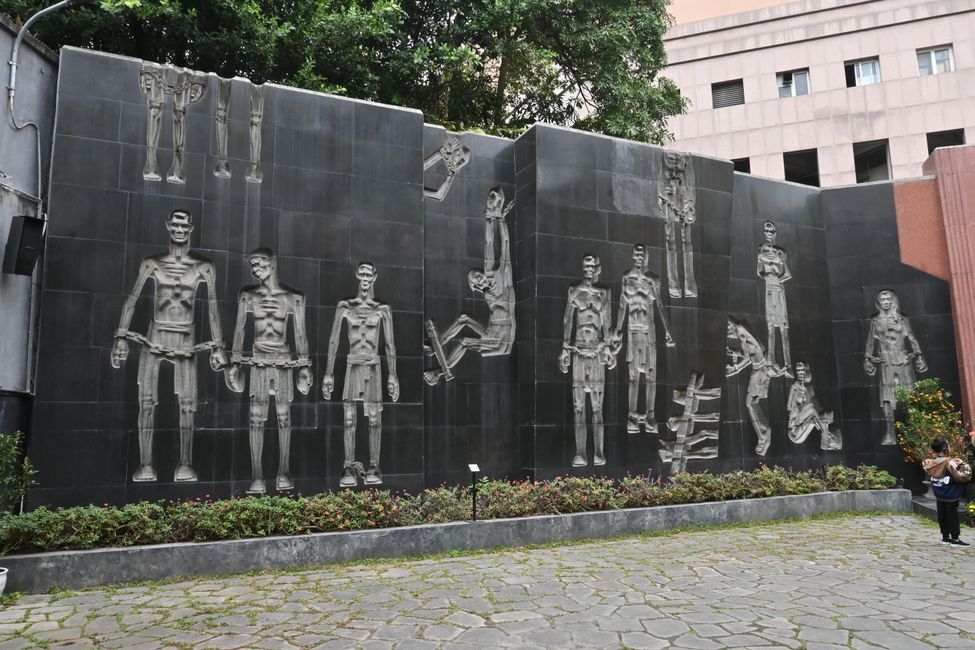
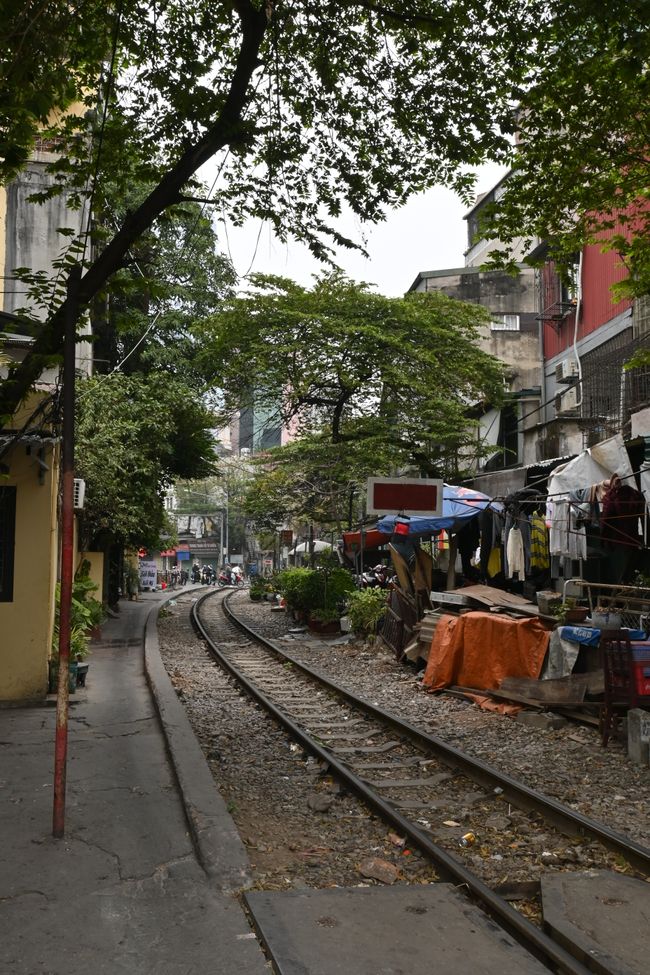
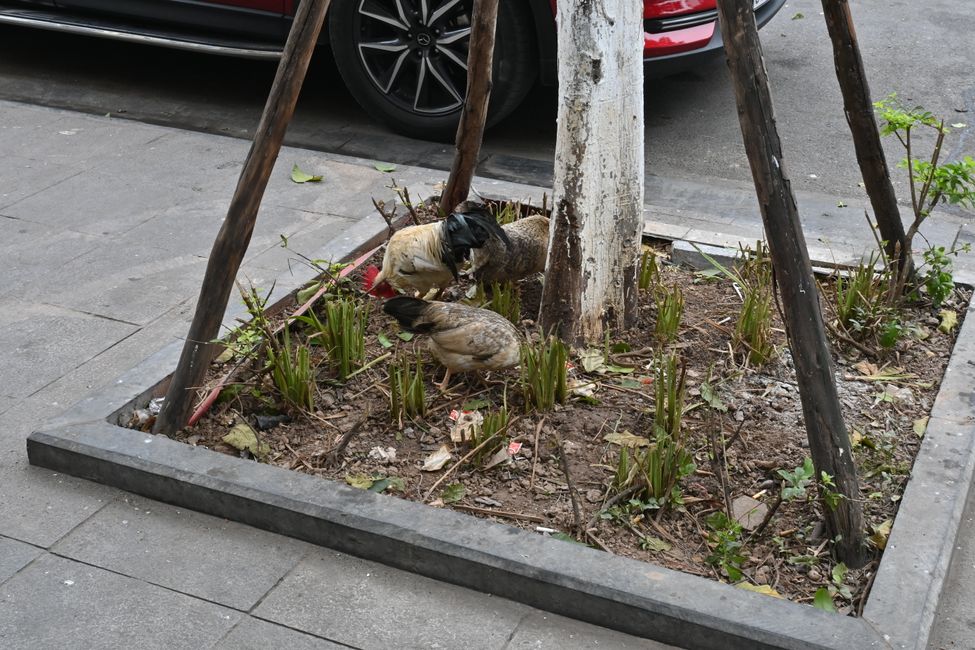
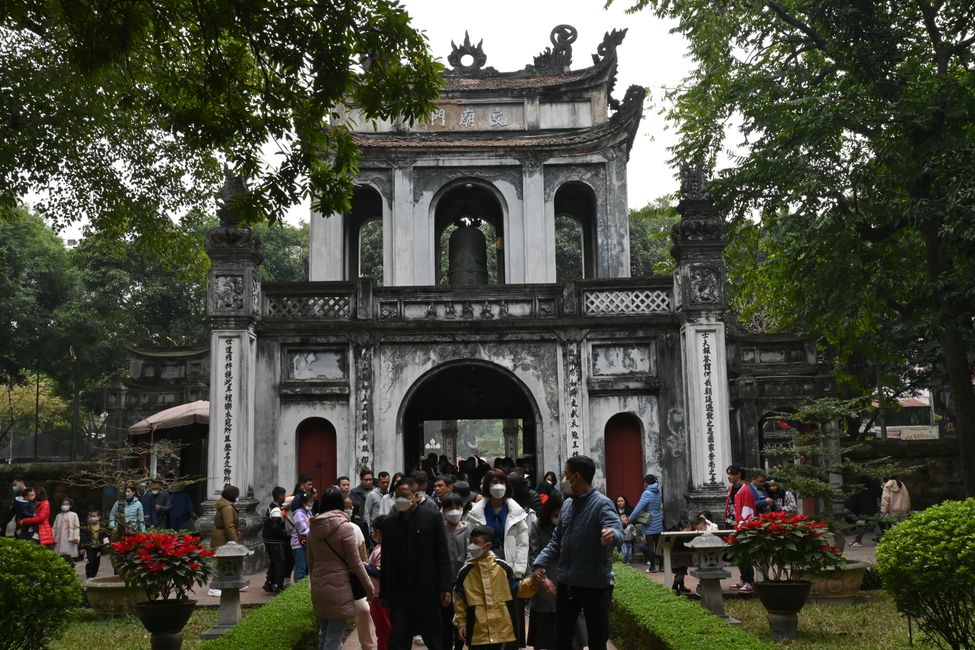
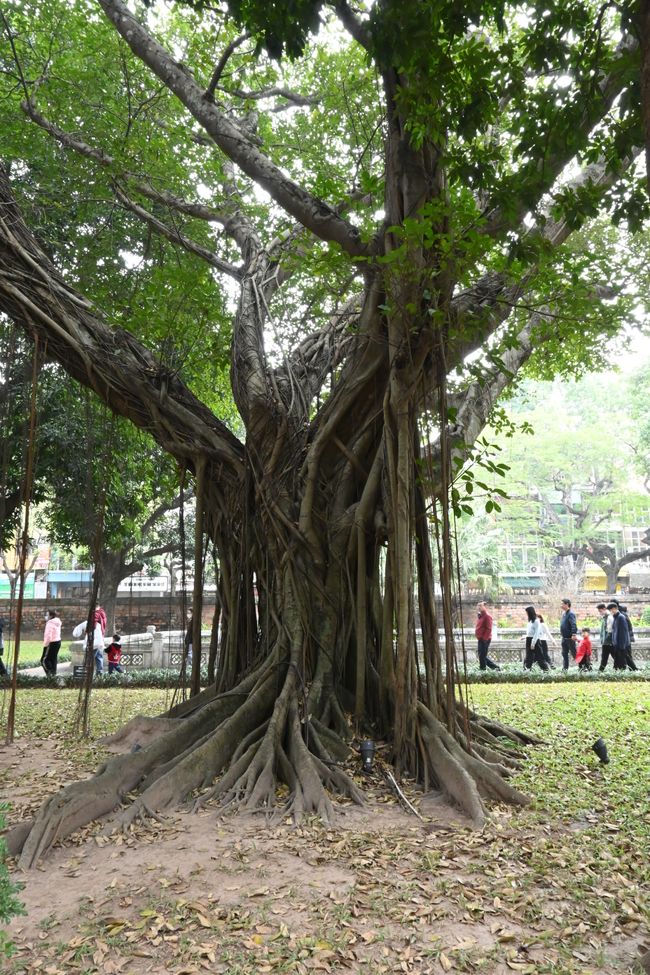
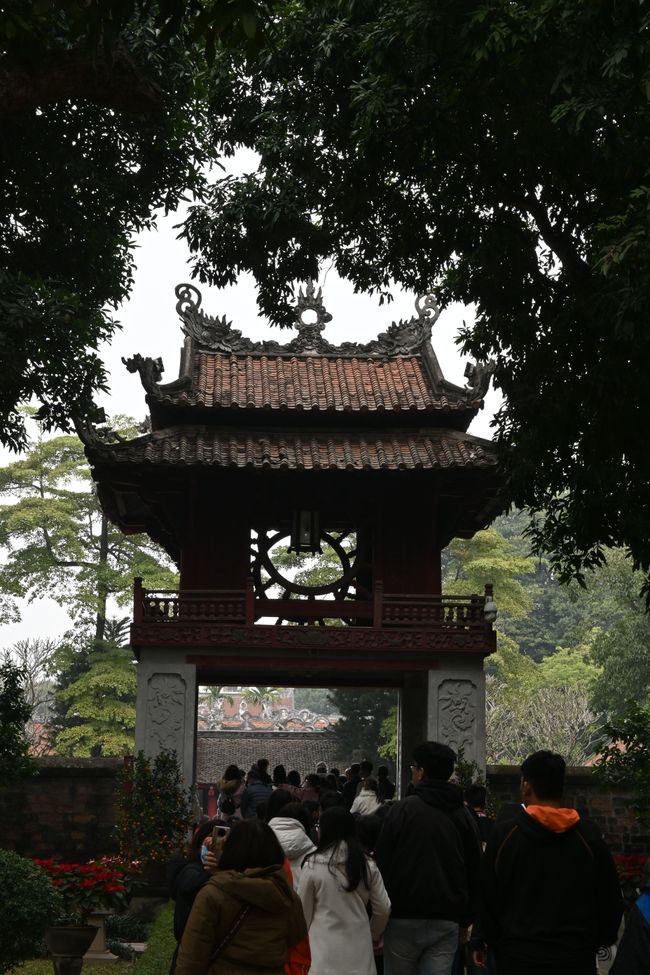
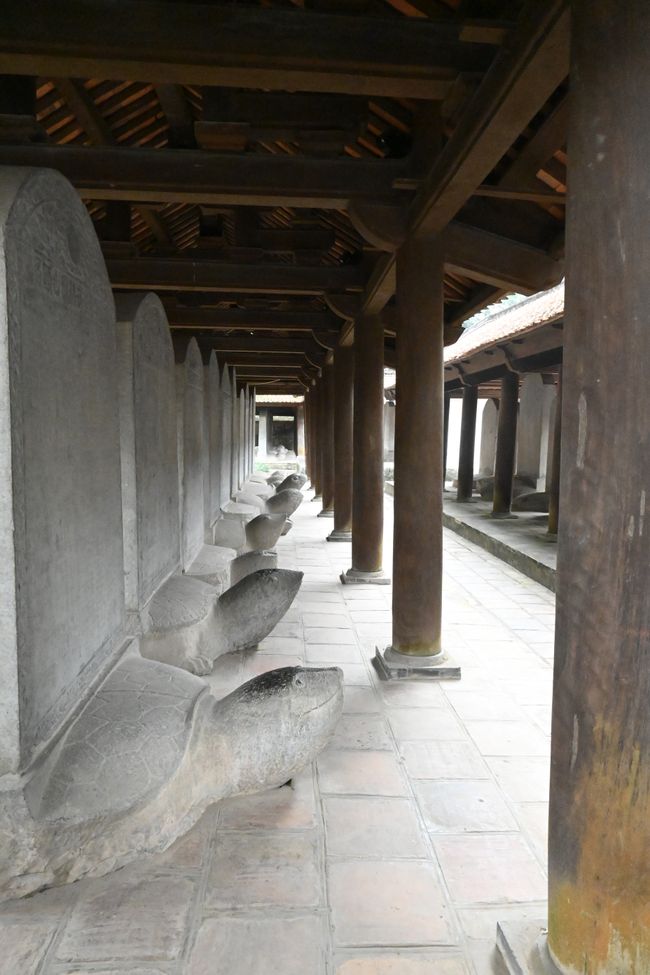
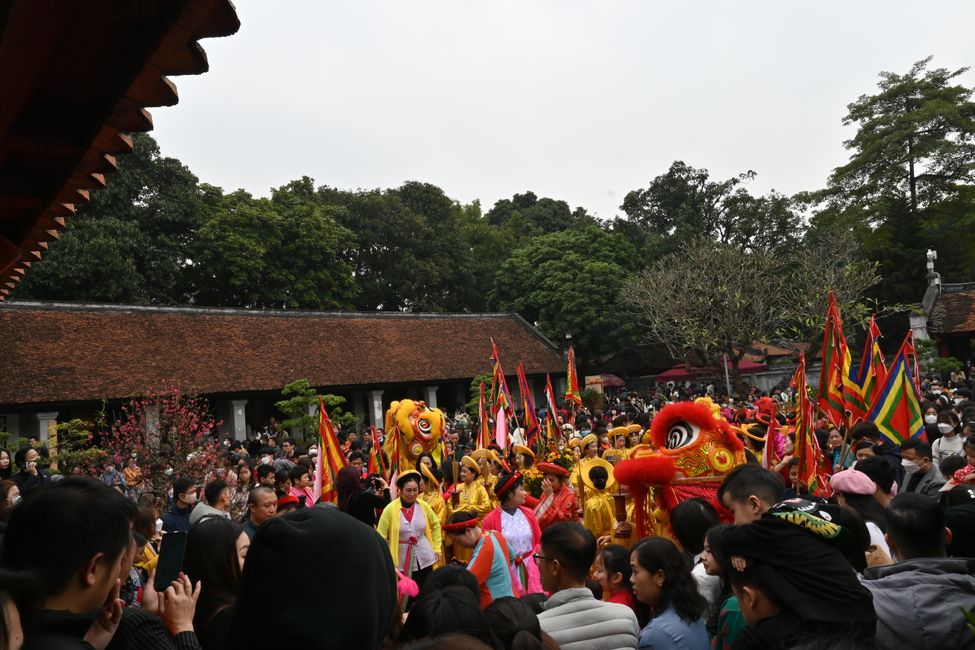
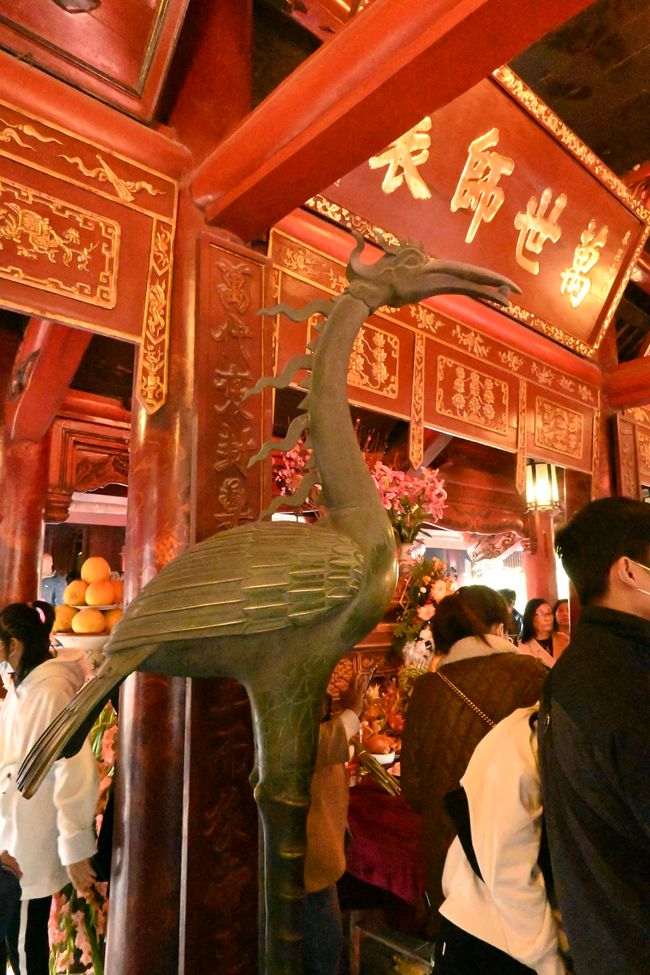
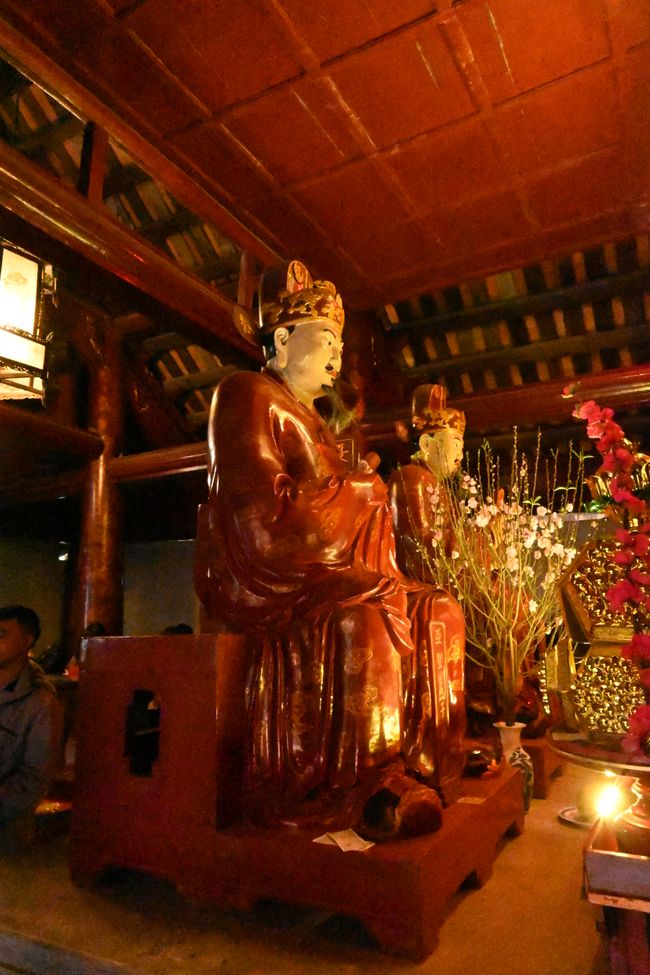
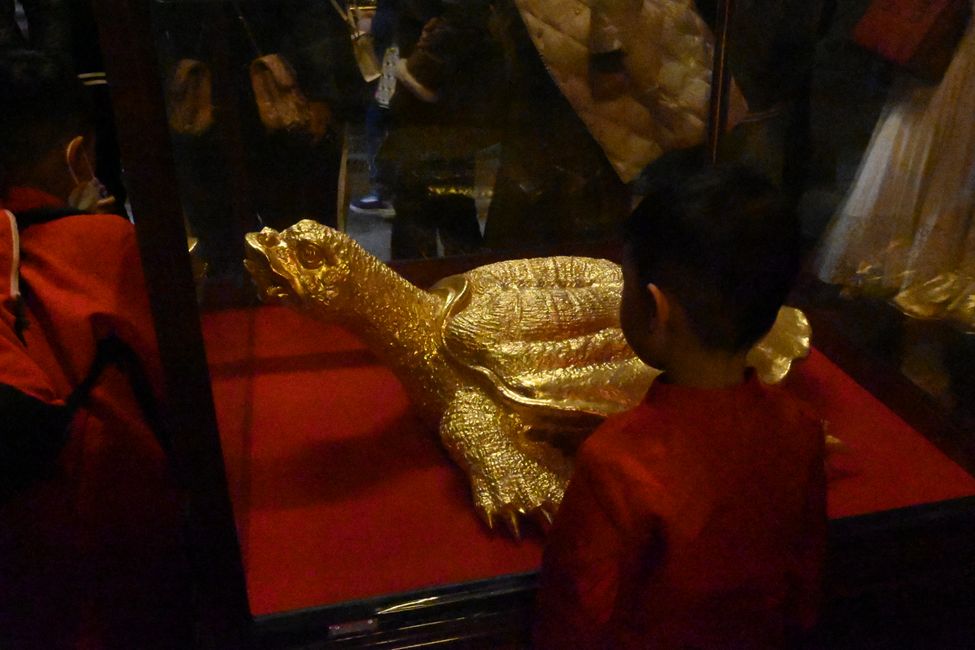
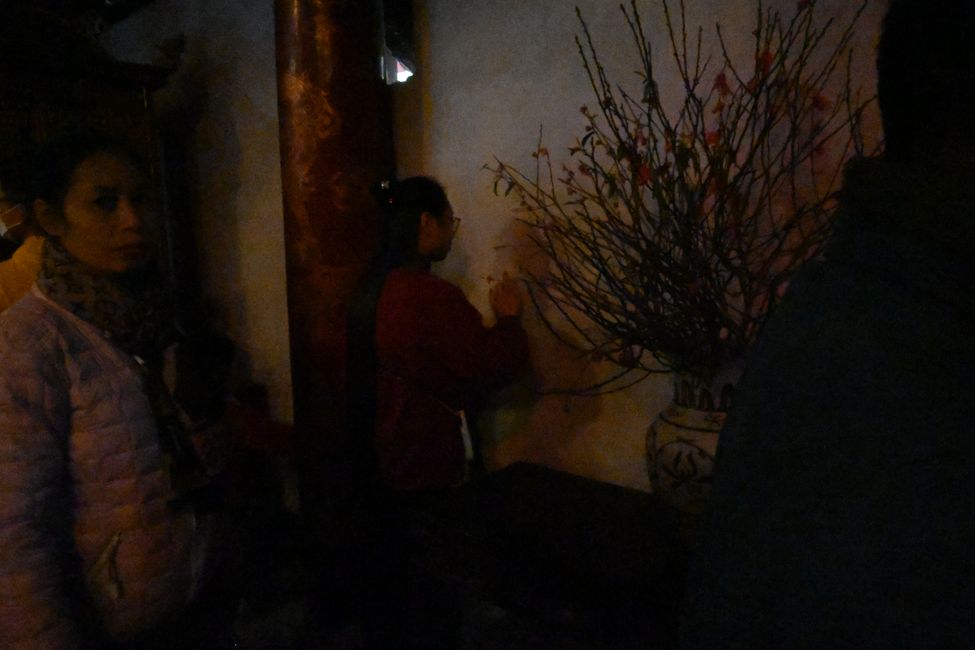
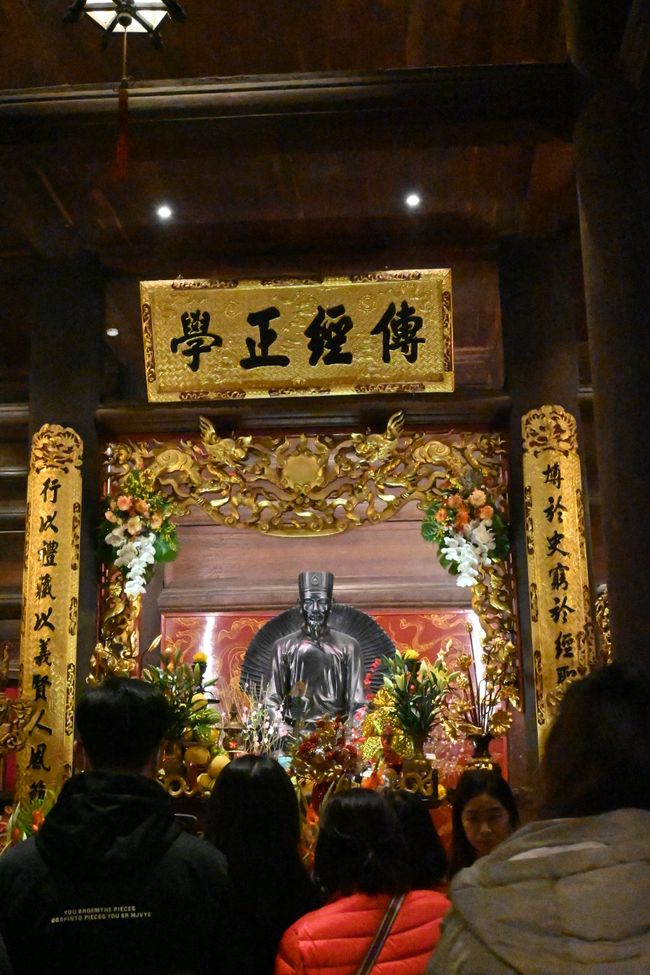
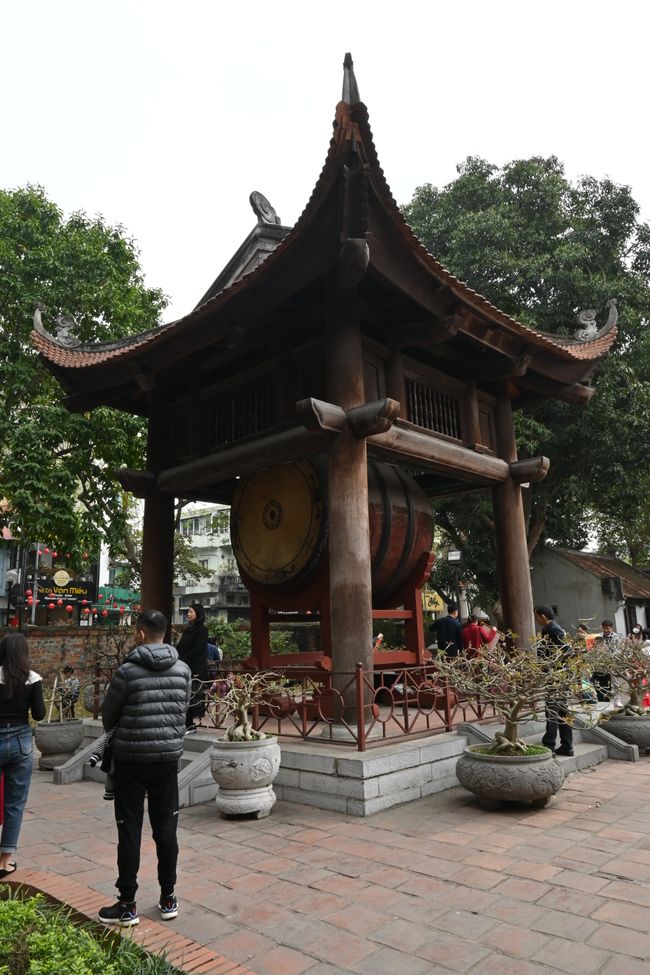
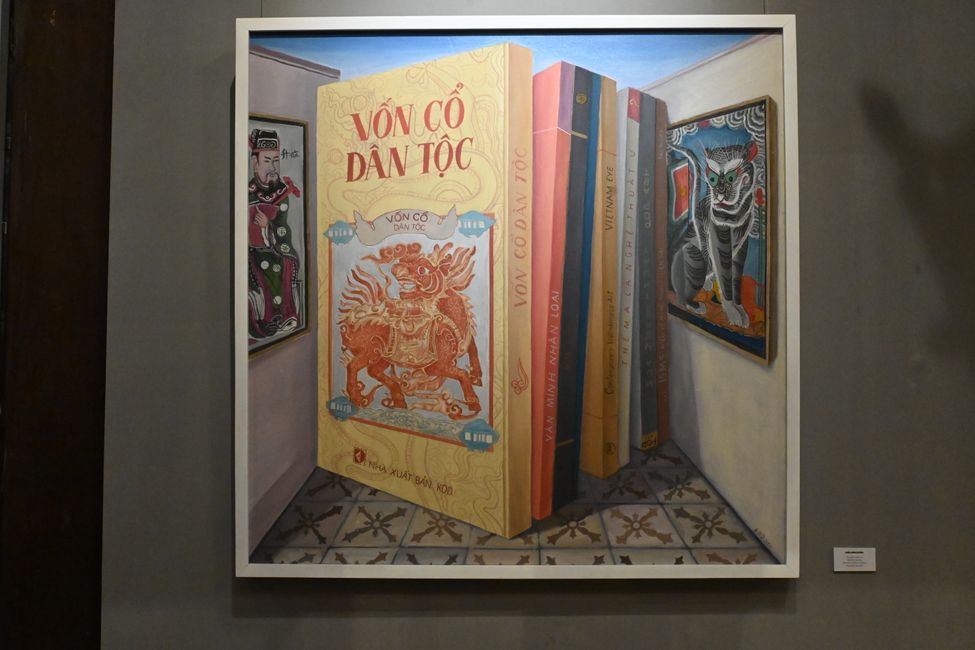
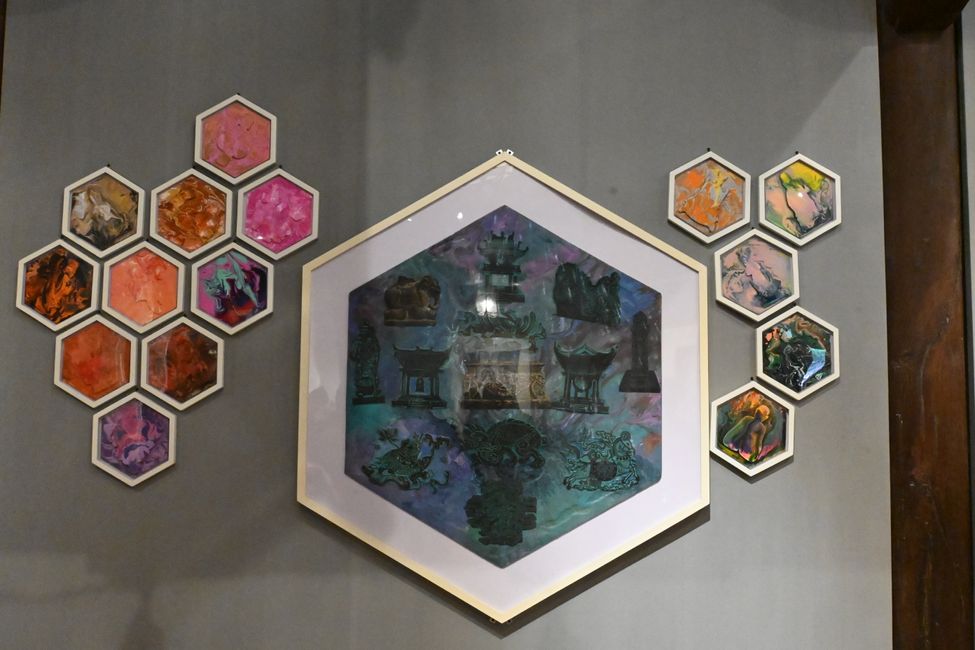
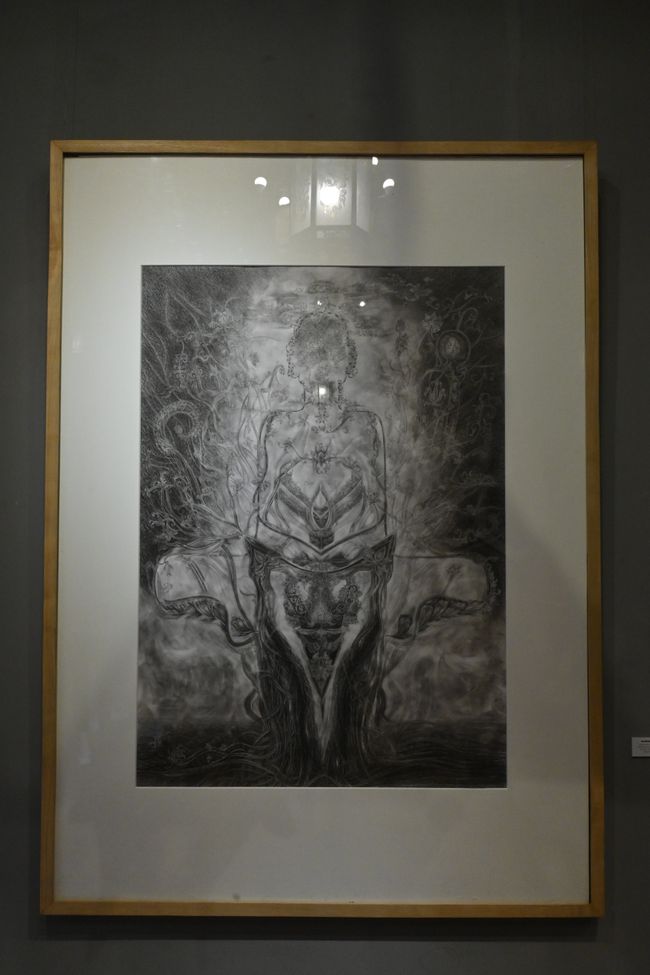
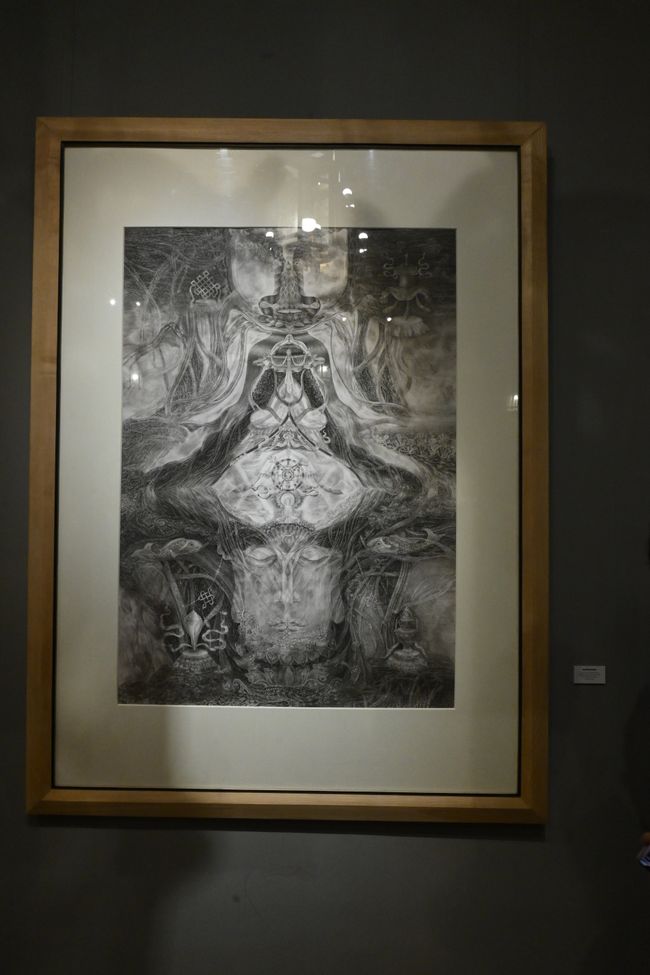
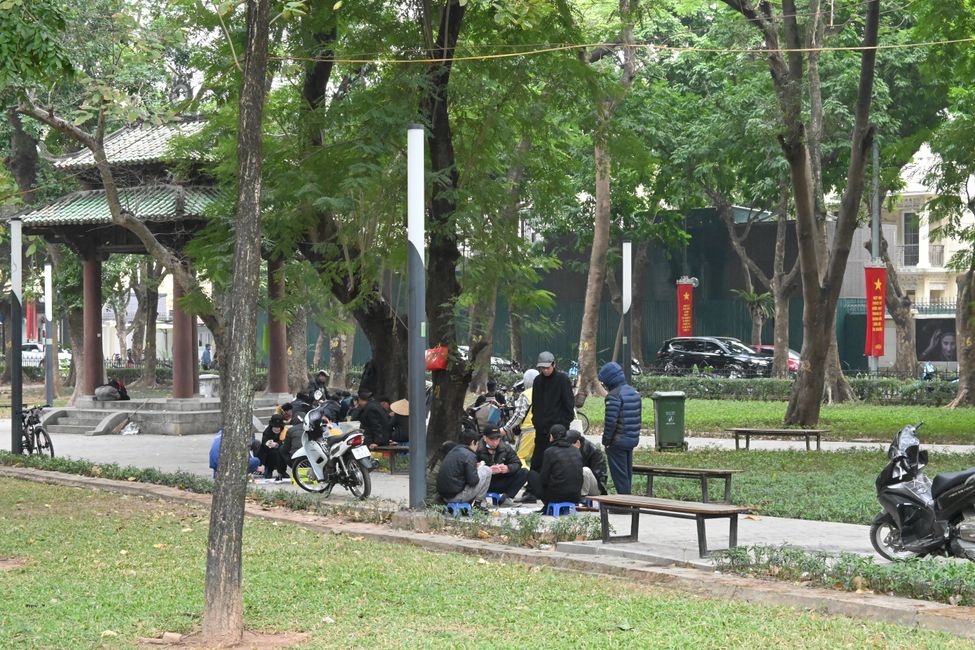
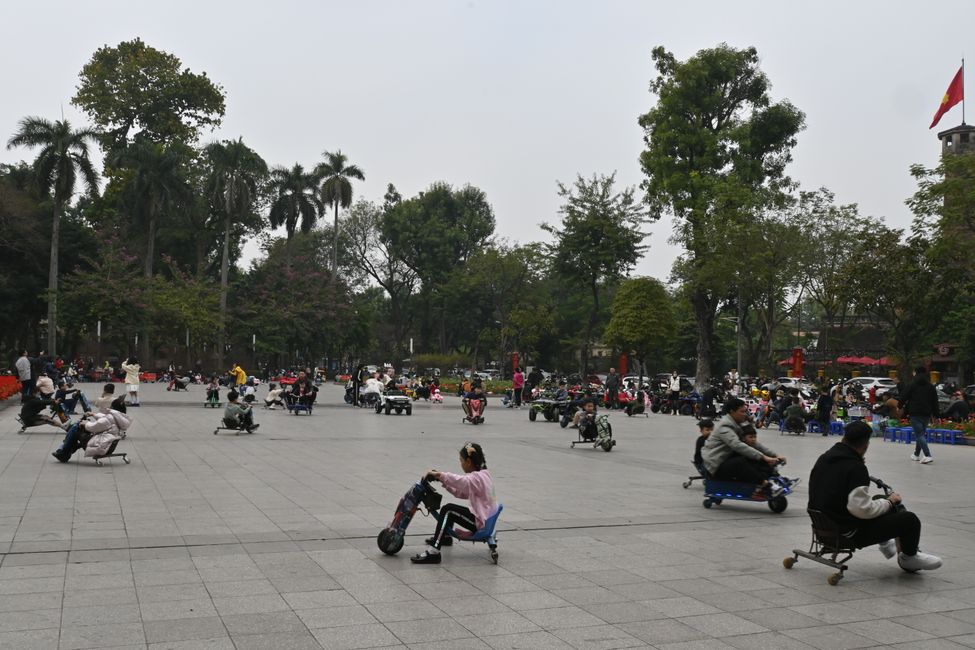
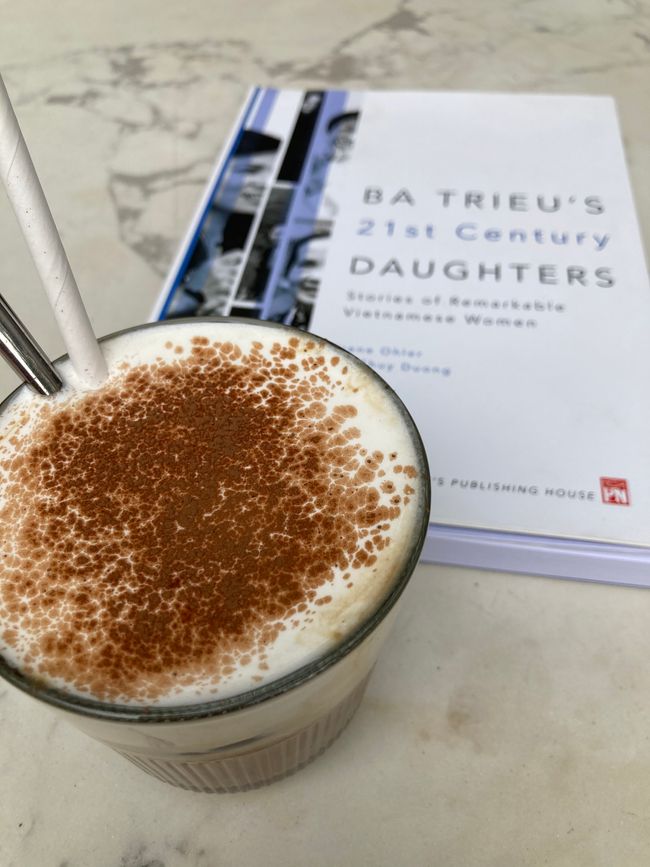
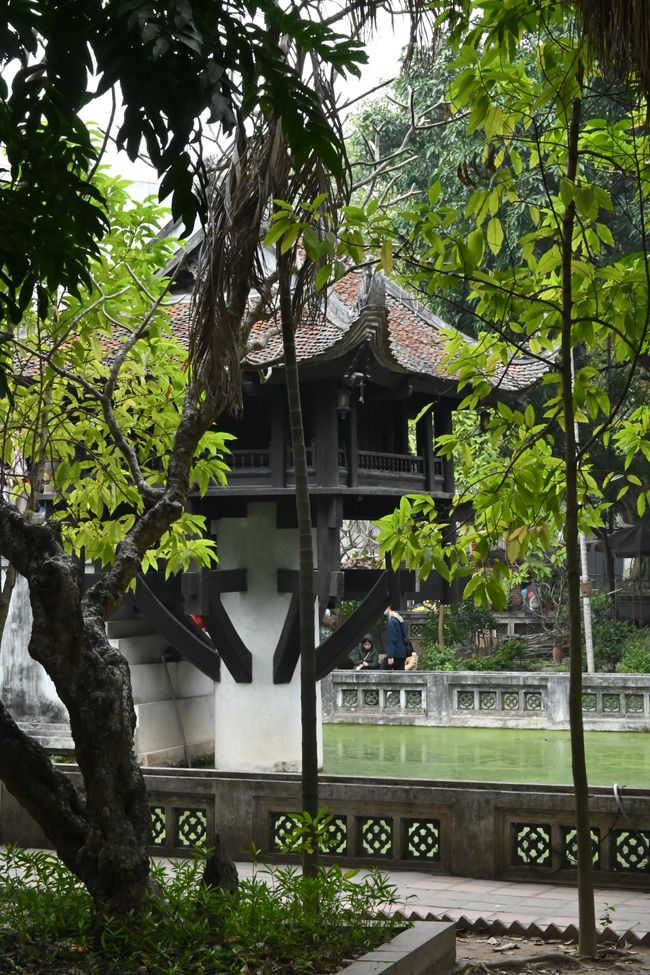
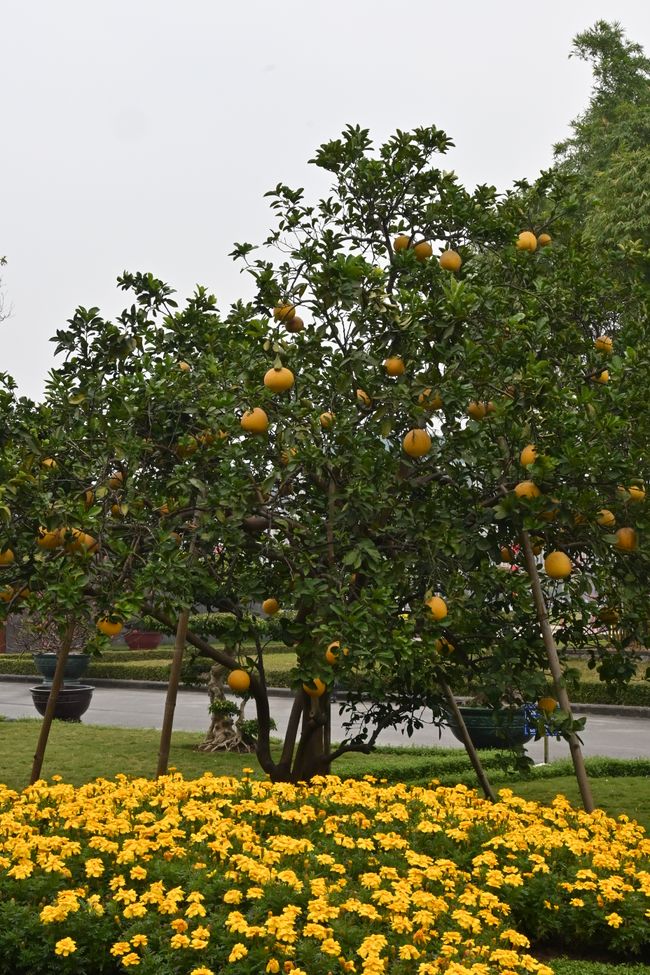
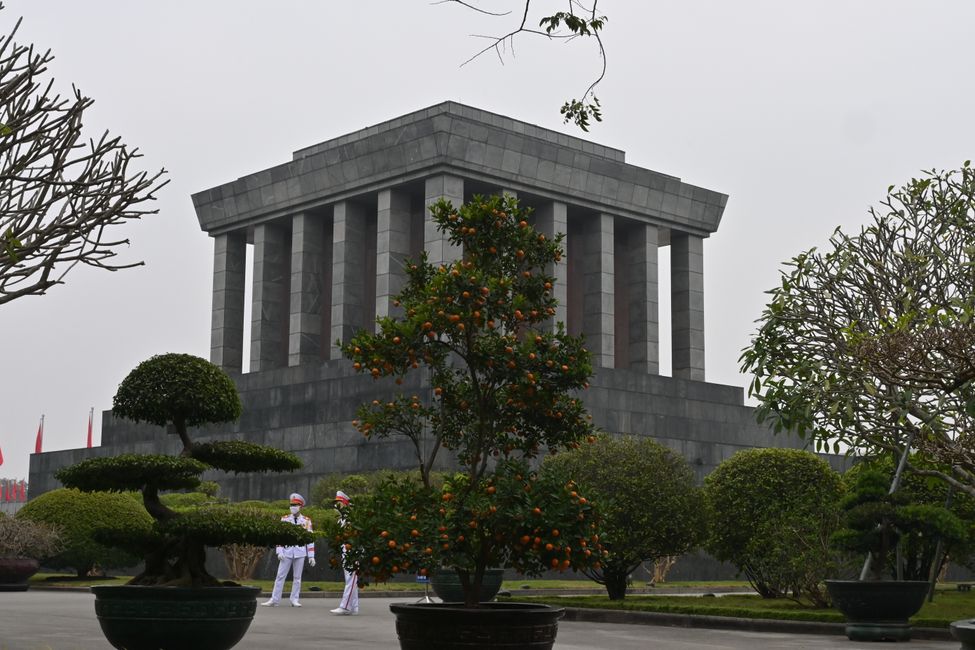
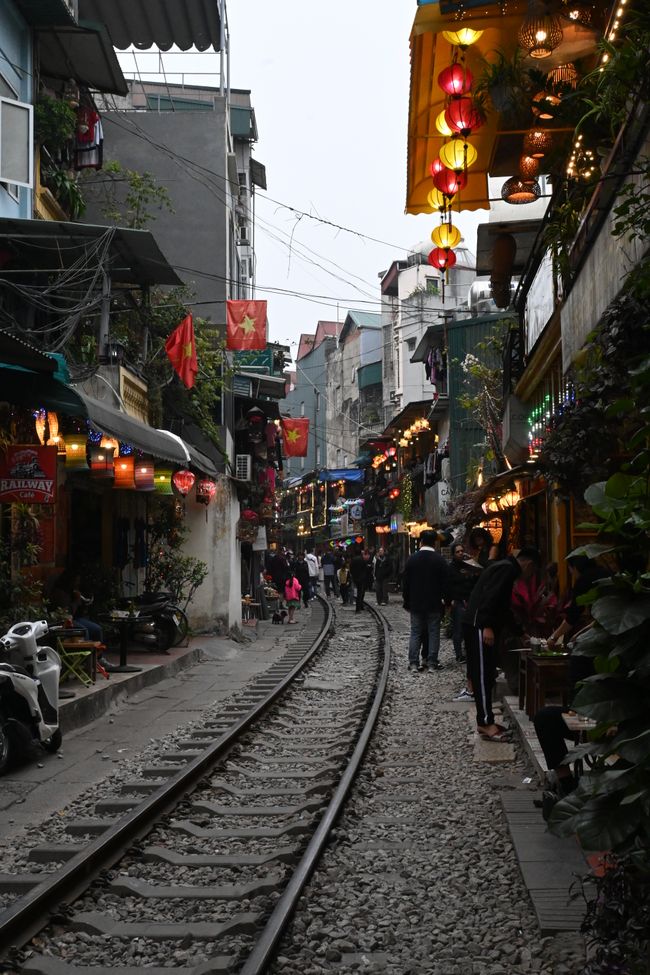
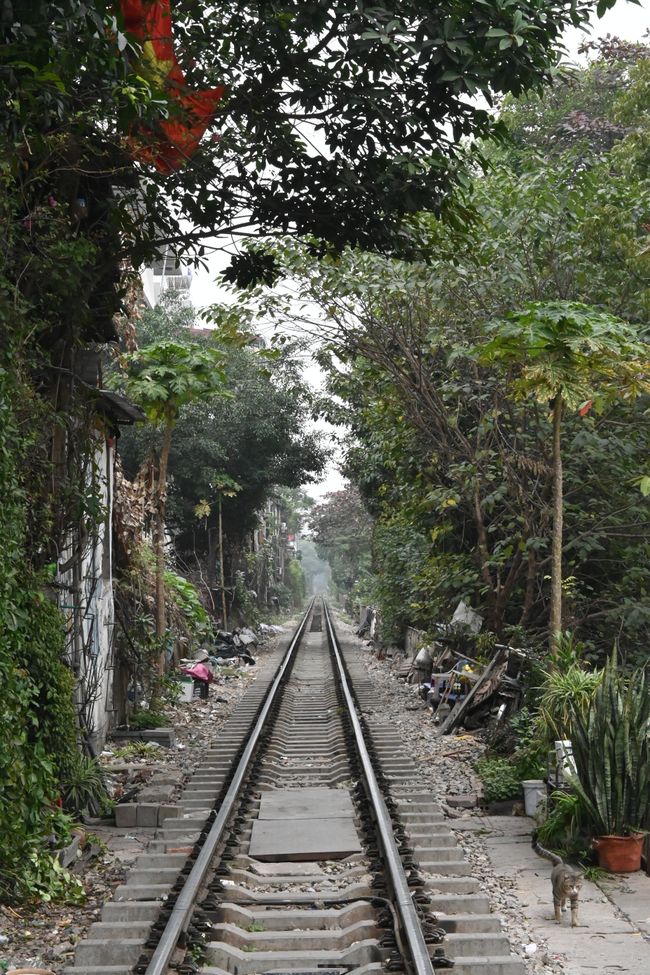
ជាវសំបុត្រព័ត៌មាន
It's Day 5, which also marks the last day of the New Year celebrations in Vietnam. The Vietnamese people spend this final day with their families. Men dressed in chic suits and women in elegant and often traditional dresses stroll through the city, drinking coffee and taking family photos. The area around the Hoan Kiem Lake is a popular backdrop for family portraits. Some families even seem to have hired a photographer specifically for this occasion. I also have the opportunity to offer my services as a hobby photographer when a group of women wants to be photographed in front of a large cat figurine. By the way, the cat is the animal sign of the newly ushered-in year in Vietnam. Everywhere you look, you can see mostly kitschy cat figurines and pictures.





I continue my stroll past the Hoan Kiem Lake towards the south, where I am drawn by lively music. It leads me to a small side street flanked by small bookstores. Oh, how I would love to have such a book alley in Innsbruck. My bookworm heart beats faster, and I think of the family members who could spend hours in such an alley. The music is coming from a small stage where party hits are played especially for the children. I sit down in a small café, order a classic Vietnamese milk coffee, and let the atmosphere soak in. I even manage to get hold of an English book about impressive Vietnamese women, written by a Vietnamese and an Austrian.




In stark contrast to the joyful atmosphere of the book alley, my stroll takes me one block further to the Hoa Lo Prison Museum. In 1896, the French colonists demolished the brick village of Phu Khanh and built a prison in its place.

Between 1930 and 1945, Vietnamese independence fighters were imprisoned here by the French. The prison, originally designed for 40 prisoners, was sometimes filled with up to 100 prisoners. The museum vividly describes the atrocities that the Vietnamese prisoners had to endure.


Not only male political prisoners were held in Hoa Lo, but also women and their children. Particularly shocking are the so-called death cells, where prisoners were chained and imprisoned in the dark with their own excrements. However, the exhibition also tells stories of resistance among the prisoners, such as hiding documents in the toilets, and how a few prisoners managed to escape through the sewage system in 1951.

During the American war against North Vietnam, American prisoners of war were held in Hoa Lo. It is noticeable that the exhibitors are eager to portray the captivity of American soldiers in a more positive light than the captivity of Vietnamese independence fighters. I cannot judge what is actually true and what borders on propaganda based on these images.
The last part of the exhibition is dedicated to the American attacks on Hanoi and Haiphong, which ultimately leads visitors to a large commemorative plaque. The photos and reports of the bombings in 1972 shake me up. I am reminded of the recent reports from Ukraine. I wonder why humanity still inflicts so much suffering on itself. The American condemnation of the Russian invasion seems hypocritical to me in light of these images.

My stroll continues to the Temple of Literature, unaware that it is a popular destination for the Vietnamese today. The temple grounds are filled with visitors. A slow-moving line of people forms, giving me time to examine everything in detail. To my delight, there is also a dance performance taking place in the courtyard of the temple, complete with dragon figures. I take the opportunity to send a prayer to every deity who can hear me, asking them to finally put an end to the wars and injustices of this world.











The Temple of Literature is not only a place of prayer but also supports contemporary local artists with a permanent exhibition. On the outskirts of the temple complex, you can buy various writing materials and calligraphy artwork.




After the rather exhausting crowd in the temple complex, I look for a café to rest for a while. On the way there, I stroll through a small park where groups of men sit together and play board and card games. Right next to it, many children, both big and small, ride various motorized vehicles on a large tiled square. It all looks very amusing, and I wish I could be a child again and join in the colorful hustle and bustle.



After the coffee boost, I head west to the grounds of the Ho Chi Minh Mausoleum. It is surrounded by a beautiful garden. In addition to the mausoleum, you can also visit the small stilt house where Ho Chi Minh lived during his reign. According to the stories, he always insisted on a modest life. The grounds do not reflect this at all. Everything looks very grand and pompous. The entire area is fenced and under police control. Guards in white ceremonial uniforms can also be found on the premises.



On the way back to my accommodation, I pass by the famous Hanoi Train Street. Until 2019, a train passed through here every two hours.


Assuming that my fitness tracker is working correctly, I have walked approximately 19,000 steps during my stroll through Hanoi. After this feat, I will treat myself to a massage and then have dinner.
ជាវសំបុត្រព័ត៌មាន
ចម្លើយ

របាយការណ៍ធ្វើដំណើរ ប្រទេសវៀតណាម

